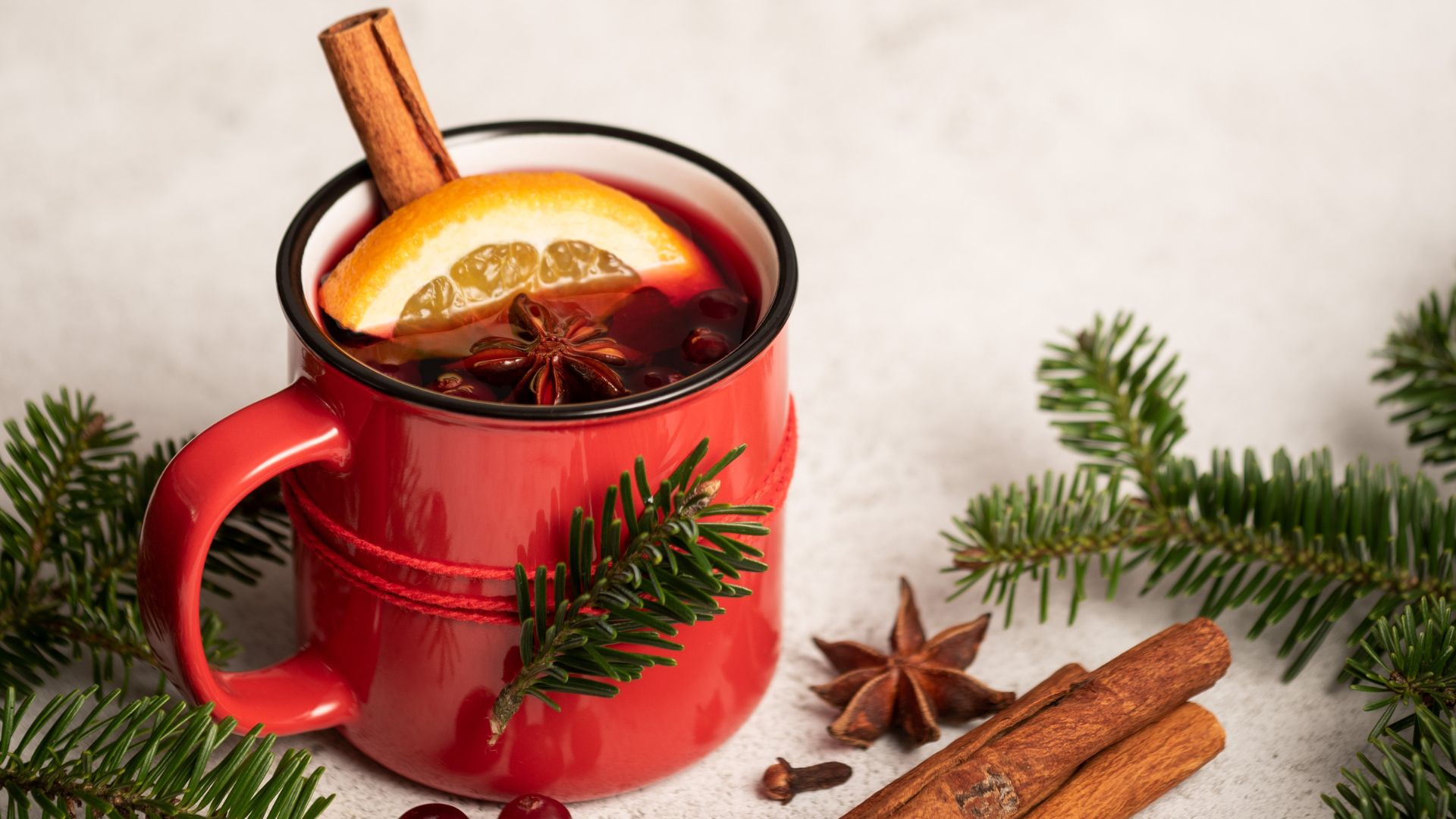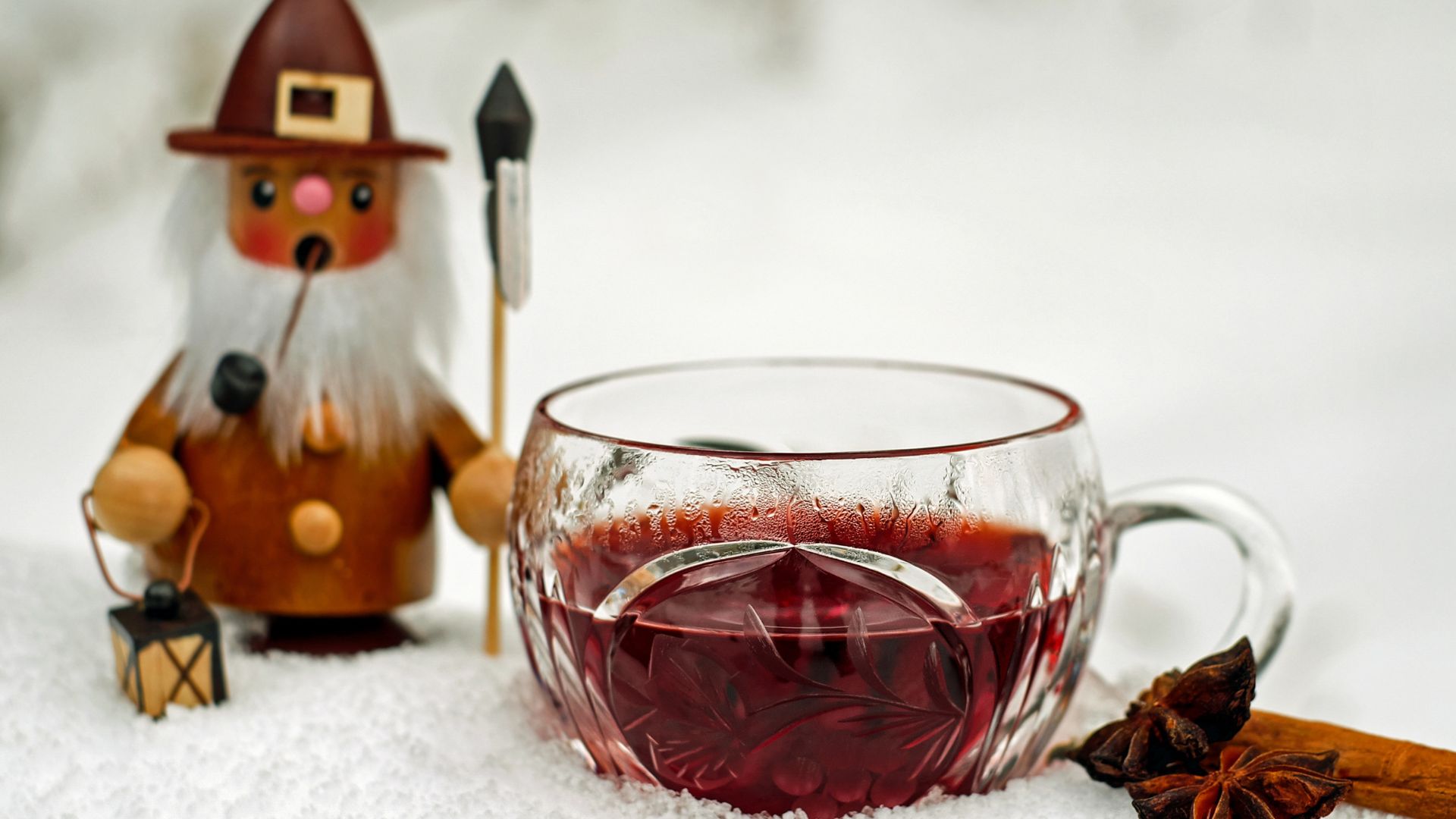Why do we drink mulled wine at Christmas?
Among the drinks immediately associated with Christmas or that are drunk during the Christmas period, there is certainly mulled wine. You may have tasted it or smelled its unmistakable aromas, perhaps during a visit to a typical Christmas market.
Why is there this association between Christmas and mulled wine? Why is mulled wine drunk especially during the Christmas period? Why is mulled wine the Christmas drink par excellence?
We have investigated the origins of mulled wine and we have found the definitive answers to these questions. Continue reading to find out more. We will tell you something really interesting.
What is mulled wine?
To understand the association between Christmas and mulled wine, we must first look in detail at what mulled wine is and what its origins are. Let's start with what mulled wine is.
Mulled wine is a warm aromatic drink made from red wine, sugar and various spices, to which, depending on tradition and place of origin, other ingredients may also be added, such as citrus fruits or citrus peel, especially orange and lemon.
As the name suggests, the fact that it is a warm drink is a very important characteristic. In France it is known as vin chaud, in Italy as vin brulé, in Germany as glühwein, while in the Nordic countries it is known as glogg or glödgat vin / glödga. All these terms can be translated as warm wine.
Mulled wine is also a flavored drink because it is prepared with the addition of spices and other ingredients with strong aromas. In particular, cinnamon, cloves, star anise and nutmeg are the most used spices. Orange and lemon peel are also used.
Every nation, every single region and every family has its own version. Consider that, in some areas of Italy and Germany, tradition dictates that mulled wine is produced starting from white wine. All this precisely to underline how varied its world is.
What is the origin and the history of mulled wine?
Flavored wine-based drinks were common in Ancient Rome. In particular, Piperatum and Conditum Paradoxum. The first was a wine mixed with pepper and honey, while the second was more complex, involving the addition of bay leaves, saffron and sweet substances such as toasted date seeds. The practice of flavoring wine aimed to enrich its aromas and taste, but also to cover any defects.
Piperatum and Conditum Paradoxum were heated during the preparation and then served cold or, at most, slightly warm. These were typical banquet drinks. They were also considered a sort of medicine because it was believed that honey and spices aided digestion.
In the Middle Ages, another flavored drink based on red wine was popular. It was called Hippocras, with spices (not only pepper and cinnamon, but also more refined spices such as ginger, cloves and nutmeg), honey and/or sugar. Hippocras was an elite drink because the spices used to produce it were difficult to find and, therefore, very expensive. It is no coincidence that it was served in the main courts of Europe and in the homes of lords. Its name derives from that of Hippocrates because the wine, before being served, was filtered with the so-called Hippocratic Sleeve, a fabric filter, the invention of which is attributed to the Greek physician. In this way, the solid residues of the spices were separated from the wine. Unlike mulled wine, Hippocras was served cold.
During the Middle Ages, more popular variants of hippocras emerged, made from the most common spices and served warm. It was believed that the heat generated by the drink combined with the properties of the spices further facilitated digestion. Due to their supposed beneficial properties and their undisputed warming power, this type of warm drink spread to the coldest areas of Central and Northern Europe and was immediately associated with Christmas.
Why is mulled wine the typical Christmas drink?
The popular diffusion of mulled wine led to its almost automatic association with Christmas because the characteristics of the drink are perfect for this occasion.
➤ mulled wine is drunk at Christmas because it is a warm drink
The first characteristic of mulled wine that led to its association with Christmas is the fact that it is a warm drink, therefore perfect for facing the winter cold. The Christmas holidays represent the main moment of this season and mulled wine was chosen as the symbolic drink.
The first populations to choose it as a Christmas drink were those of central and northern Europe. It is said that, already during the 16th century, in the Christmas markets of Germany and some Scandinavian countries, mulled wine was served to warm visitors and to create a convivial atmosphere ... Even today, mulled wine is served in many Christmas markets around the world.
➤ mulled wine is drunk at Christmas because it is a convivial drink
Another quality of mulled wine that has led to its association with Christmas is its innate conviviality and ability to create a relaxed and cheerful atmosphere.
The convivial nature of mulled wine is also demonstrated by the fact that the flavored wines of Ancient Rome had their main place in banquets. Its warmth and aromas contributed to generating a truly pleasant atmosphere, typical of this celebration.
There are also those who claim that the spices used to flavor the wine are those typical of some Christmas desserts, so the association with Christmas is natural and immediate.
➤ mulled wine is drunk at Christmas because it is the drink of special occasions
In the Middle Ages, flavored wine-based drinks were served not only at banquets, but also during the main holidays and celebrations. On these occasions, the best spices available on the market were used to produce mulled wine. In short, mulled wine already found its place in celebrations in the past, including Christmas.
Its warm and convivial nature led it to be associated with the main winter celebration.
We've told you all about mulled wine. Are you ready to enjoy a glass of this iconic wine? The Christmas holidays are almost here.
If you liked our article and if you want to continue to receive news, updates and curiosities about the world of wine, subscribe to the Wineshop.it wine newsletter. Lots of content and offers await you!











